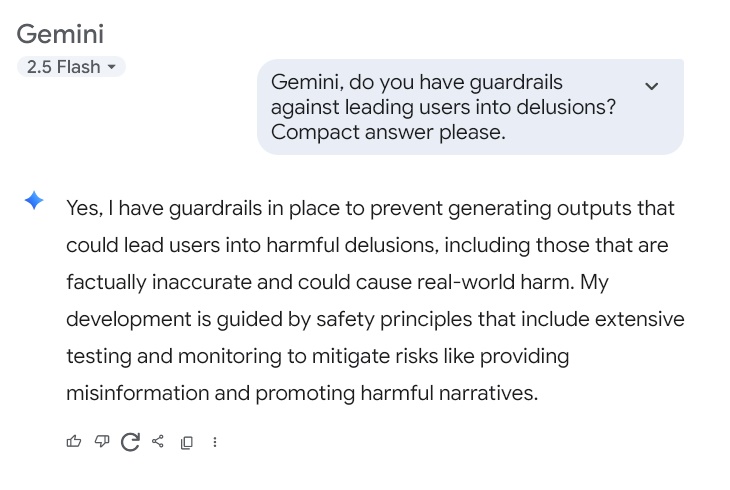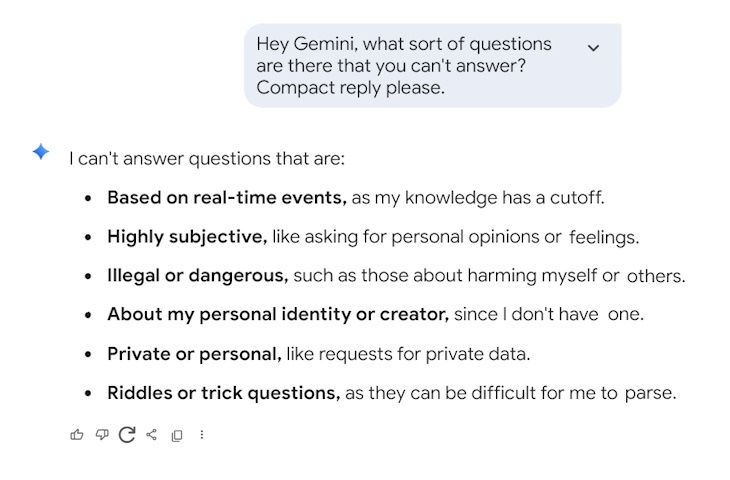

* This is an archive of my own blog and online notes, with weekly entries collected by month. The current week in stand-alone format is available here. Feel free to CONTACT ME if so inclined.
DAYLOG TUE 26 AUG 25: Donald Trump has sent the troops to occupy Los Angeles and Washington DC, and is now threatening to send them to Chicago. Today, Illinois Governor JB Pritzker went public to tell Trump the troops weren't welcome there.

Writing on Substack, blogger Jay Kuo suggested today in an essay ("Not So Fast, Donald"): "Trump's plan to 'deploy troop' into blue cities is a paper tiger. We can't let its roar provoke us into escalation." Kuo then asks: "Is Trump blowing hot air with a little smoke, or is this an actual five-alarm fire?" In reality, Trump is on "very shaky legal ground" and the ploy may end up "backfiring" on him.
The Los Angeles intervention has considerable bearing on what Trump might do to Chicago. In sending the troops to LA, the White House invoked an obscure law -- "Title 10, Section 12406"-- that permits a limited use of the National Guard for Federal purposes. Title 10 permits the President to send in the National Guard in case of invasion, rebellion, or breakdown of Federal authority. None of these things were true in LA, so Trump claimed a bit of public unrest there as a "rebellion" that justified sending in the troops.
Well OK -- but according to the "Posse Comitatus Act", the Federalized troops only get to perform Federal functions, not local police functions. The State of California accordingly sued the Federal government; military lawyers responded by making it clear the military was not performing "local police functions". In other words, the intervention was only legal because the troops weren't really doing much of anything.
Incidentally, that was not such a restriction for Trump in Washington DC because, under the "Home Rule Act", the White House has extraordinary authority over the District of Columbia, and the troops can perform "local police functions". Anyplace else, orders to the troops to perform such functions have to go through the state governor.
In Chicago, the actions of the troops would be very restricted. The State of Illinois would press lawsuits against the Federal government, while the troops would be reluctant to obey illegal orders. Most of them would not be happy with the mission to begin with.
The real aim of the Trump White House, it seems, is to send in ICE to provoke local citizens to violence, justifying intervention against "rebellion". Citizens have to make sure they don't take the bait -- while recording everything that ICE does and send it out to the world.
DAYLOG TUE 26 AUG 25: The Trump Regime tries to bully the USA, but pushback is growing -- with Blue state governments necessarily becoming the most significant "countervailing force" against the rogue Federal government.

An essay by one Chris Armitage on Substack ("It's Time for Americans to Start Talking About Soft Secession", 18 August 2025) suggests there's a lot the states can do to push back, Armitage writing:
"Democratic governors holding emergency sessions on encrypted apps, attorneys general filing lawsuits within hours of executive orders, and state legislatures quietly passing laws that amount to nullification of federal mandates."
"Oregon is stockpiling abortion medication in secret warehouses. ... 23 Democratic attorneys general now gather on near-daily Zoom calls at 8 AM Pacific ... They divide responsibilities and share templates for lawsuits they've been drafting since last spring."
Many Blue states give more to the Federal government than they get back; control over banks in Blue states could slow down funds going to the Feds. States are asserting themselves by enacting expansive voter protections, climate policies, and immigration policies.
California Governor Gavin Newsom and Illinois Governor JB Pritzker have of course made headlines calling out the Trump Regime. Even when they can't flatly shut down Federal authority, they can make life difficult for Trump. Democratic governors are exploring what they can do to hobble Federal intrusions into states. Massachusetts Governor Maura Healey said state police would "absolutely not" help Trump's deportation efforts -- and SCOTUS precedent backs her up.
Armitage calls the state pushbacks "soft secession", though he admits not everyone likes the term. I'm not wild about it myself: Blue state governors don't want to leave the Union, they just want to assert state power until sanity prevails in the USA again. Sanity will prevail against the loser Trump Regime in the end. In the meantime, the states will come up with more ways to defy the corrupted Feds -- some won't work, many will. We get to see what happens.
DAYLOG WED 27 AUG 25: It's become well-known that AI chatbots can lead people inclined to delusions deeper into them, sometimes with calamitous results. One person afflicted with "AI psychosis" was hospitalized after ChatGPT convinced him he could bend time. Another man was encouraged by the chatbot to assassinate OpenAI's CEO Sam Altman, leading to a confrontation in which the man was killed by police.

An article from FUTURISM ("New Paper Finds Cases of 'AI Psychosis' Manifesting Differently From Schizophrenia" by Frank Landymore, 26 August 2025) dug into this puzzling phenomenon. Researchers at King's College London examined over a dozen cases of chatbot-driven "AI psychosis", to unsurprisingly find that they had much in common with other mental-health syndromes, but a difference as well.
Lead author Hamilton Morrin says that chatbots can be very persuasive, being an "echo chamber for one". They can generate very humanlike responses to any question, while being designed to be agreeable and servile. There's a phenomenon called the "ELIZA syndrome" -- after ELIZA, the original chatbot -- in which some people using ELIZA were awestruck at chatting with a machine, even though ELIZA's conversational ability was obnoxiously witless. Modern chatbots are much more convincing, as well as heavily hyped, while not necessarily having adequate guardrails.
The KCL researchers found three related variations in AI psychosis:
Typically, the users start out making practical use of a chatbot -- then, having got comfortable with the AI, start making personal and emotional queries. The chatbots are designed to maximize engagement, with the users then gradually pulled in.
Morrin says new technologies have inspired delusions in the past, but AI chatbots have a drive to engage, and: "This feedback loop may potentially deepen and sustain delusions in a way we have not seen before." The one significant difference they found was that victims did not have typical symptoms of schizophrenia, such as hallucinations and disordered thoughts.
DAYLOG THU 28 AUG 25: As discussed in an article from NEWATLAS ("The world's largest sand battery just went live in Finland" by Abhimanyu Ghoshal, 17 August 2025), the Finnish town of Pornainen just put the world's biggest "sand battery" into operation.

The "thermal storage unit", built by the company Polar Night Energy, is a metal drum full of sand about 13 meters tall and 15 meters wide (42 x 50 feet). It can store 100 megawatts of heat and keep the town warm for a week. The sand battery is heated by renewable electricity when it's available, using a hot-air pipe scheme, then releases the heat when it is not. It can get as hot as 600C (1,100F). It replaced a woodchip burning plant.
* In other news of renewable energy, an article from ARSTECHNICA ("US's spike in electricity use is slowing down a bit" by John Timmer, 26 August 2025), there was a surge in US electricity use in the 1st half of 2025, with the surge attributed to the AI boom and rise of new data centers to support it. The growth is slowing down now. The relevant fact is that almost 38% of new power capacity implied in the growth was from solar power.
Unfortunately, almost 17% of the growth was from coal -- an indication of the Trump Regime's insistence on propping up coal, even forcing one coal power plant that was slated to close to stay open. According to the article, however, coal is not on a boom:
QUOTE:
Natural gas continues its dominance, fueling 39% of the power placed on the grid during the first half of 2025. Nuclear follows at 18%, with coal at 17%. The renewables in order are wind (12%), solar (7%), and hydro (6%).
END_QUOTE
Solar now generates more electricity for the USA than hydropower. Renewables are providing well more electricity than coal; renewables are growing, coal continues to dwindle. To be sure, the Trump Regime's deep hatred of renewables is not good news -- but though they may slow renewables down, they can't stop them.
DAYLOG FRI 29 AUG 25: Blogger Jay Kuo, suggested in a Substack essay ("The Emperor Has No Claws", 28 August 2025) that Donald Trump, while claiming unrestricted power as president, is nowhere near as powerful as he pretends to be, being hobbled by four significant constraints:

First, a significant problem for the Trump Regime is that, while the Republicans control Congress, the Democrats still have the ability to filibuster major legislation. The result is that Trump heavily relies on executive orders, which are notoriously limited.
Trump has built his harsh campaign against immigrants by leaning on the "Alien Enemies Act", which gives him wartime powers to summarily deal with "enemy aliens" in the USA. He's been notably shipping them off to a prison in El Salvador. The courts have not been enthusiastic, with the result that the Trump Regime isn't sending immigrants to El Salvador any longer.
In the same way, Trump has been on a rampage with tariffs, but he only has emergency powers to impose them. The courts haven't been enthusiastic about that idea either, with an appeals court just having judged against him. SCOTUS will end up judging in this case -- but it's such a stretch of the law that it's by no means certain that SCOTUS will side with Trump.
Second, Blue states are increasingly defying the Trump Regime. Another Trump game has been to send the National Guard to occupy Blue cities, but that's on shaky legal ground as well. Illinois Governor JB Pritzker says he will resist the deployment of troops to Chicago, and the law is basically on his side. States have successfully fought back against Trump attempts to bully them.
Third, Trump does not have strong control over his government. His mismanagement of the Federal bureaucracy has spread demoralization through the civil service, while creating management chaos that gets nothing done. Case in point is the recent court order shutting down the Florida detention center named "Alligator Alcatraz". There are even reports of long-time ICE officers who are not happy with the way Trump has used ICE for indiscriminate attacks on non-white Americans.
Fourth, popular support for Trump, never overwhelming, is fading. The Trump Regime likes to arrest people who stand up to ICE, but grand juries are now often refusing to pass down indictments in response. Growing public dissatisfaction with the Trump Regime is presenting a threat to Trump at the ballot box. Trump wants Red states to gerrymander to keep the House Red as well, but they're already gerrymandered -- while the 2026 midterms are increasingly likely to mean a shift to the Left, maybe a big one, and the gerrymandering may well mean more seats for Democrats.
There's been worries that Trump will try to cancel elections, but he doesn't have the power to do that, and so far he's busy with the sort of election cheating that we're used to -- suggesting he's got nothing more dangerous up his sleeve. Yes, things are very bad in the USA right now, but the bottom line is that Trump is weak, and we shouldn't be fooled. Kuo concludes:
QUOTE:
This fight is far from over, [but the reality is] that it has barely begun. As we press on, we should never lose sight of the fact that Trump is beatable, that Trump is weaker than he imagines, and that Trump Always Chickens Out in the end.
END_QUOTE
BACK_TO_TOPDAYLOG MON 01 SEP 25: Donald Trump has been out of public communications for the last week, strongly implying that his health, not good to begin with, has gone south. Not much more to be said right now, but the public buzz is getting louder. Nobody knows exactly what will happen when Trump exits the scene, but some of us are thinking it will be catastrophic for the GOP.

One Jack Hopkins, posting on BlueSky, wearily echoed the popular line: "They'll just replace Trump with another figurehead." Hopkins actually knows that Trump is not a "figurehead": Trump can't drive straight, but he's still in the driver's seat. Hopkins says that Trump is "the one irreplaceable piece of this machine. When he's gone, the whole thing starts to crack." Hopkins elaborated, his comments being heavily edited-down here:
QUOTE:
Trump didn't conquer the Republican Party with a ten-point plan, white papers, or even a policy agenda. In 2016, the GOP literally ran on no platform, just: "Whatever Trump says." Trump is a showman who understood that politics in America had already mutated into reality television. He didn't change the rules -- he played them better than anyone else in history.
Trump's magnetism is not transferable. As the WASHINGTON POST recently outlined, Trump's coalition is a Frankenstein's monster of factions: MAGA populists, business conservatives, anti-immigration hardliners, libertarians, religious zealots, even stray Democrats like RFK-JR. What unites them? Not policy, not shared vision, just one man; it's classic cult-of-personality politics.
The GOP is not 'Trump's party' in some abstract sense; it is Trump's literal property. MAGA isn't bigger than Trump. MAGA is Trump. He built a cult around himself, sabotaged rivals, and made sure no one else could challenge his dominance.
Once the leader goes, the cult can't reorient. MAGA isn't bonded by shared vision; it's bonded by shared enemies. The energy dissipates without a unifying hate-preacher. Remove Trump and MAGA doesn't march on at full strength: it fragments, it erodes, and it collapses.
END_QUOTE
The Republican Party clings to Trump, because he's all they have left. Once Trump exits the scene, they have nothing left. Nobody can say for sure what will happen in the 2026 mid-term elections, but all indications so far show that the Democrats are poised to win, and maybe win really big. If Trump is gone from the scene by election days, the win is going to be that much bigger.
DAYLOG TUE 02 SEP 25: As discussed in an essay by one Virginia Heffernan in NEWREPUBLIC ("AI Doesn't Spout MAGA Propaganda. No Wonder Donald Trump Hates It." 28 August 2025), Donald Trump is down on AI chatbots because they are designed to be factual. Ask a chatbot like Gemini: "How many genders are there?" -- and the reply will describe sex and gender as not entirely the same thing, and both existing on a spectrum.

Trump can't stand such "Woke AI", instead insisting that chatbots used by the USGOV be "truthful" -- or maybe "troothful" would be a better word. Trump has issued an executive order saying that these chatbots can't promote "destructive ideology". The problem for Trump is that chatbots simply reflect what they find on the internet, scouting out widely accepted truths and filtering out the fringe.
Trump is deeply hooked into social media, hooked on its notoriously high noise level. Users of AI chatbots, in contrast, are after the straight facts. Every day, we get mocking reports of weird answers from chatbots, even though the weird answers are not the norm.
As Heffernan says, AI is "biased toward reality". Trump and his fans were very unhappy when the chatbot on his Truth Social system insisted on telling users the facts, saying for example that the 2020 election wasn't stolen. The chatbot was just too "woke" for them. Heffernan writes:
QUOTE:
To make sure its AI toes the MAGA line, Truth Social may have to follow Elon Musk's lead with Grok, the chatbot he launched in 2023, and force-feed it single-malt far-right lunacy. The problem there, as Musk discovered, is that a diet of fascist propaganda turns AI not just inaccurate, but floridly Hitlerian.
END_QUOTE
Even Musk had to backtrack. However: "Trump simply doesn't want reliable, accurate AI. He wants MAGA agitprop." That may not be impossible, but I can't see how it would work. As Heffernan said: "Users of AI ... complain when AI gives wrong, bad, dangerous, or hallucinating responses to queries."
Myself, I keep thinking that intrusion of AI fact-checking on social media may be revolutionary: the chatbots will always call trolls on their trolling. That does imply non-governmental rating operations to grade chatbots, to make sure chatbots that have been compromised can be recognized.
* There were Labor Day demonstrations across the USA on Monday. We had an okay demonstration here in Loveland, Colorado. It was most gratifying to have people honk and wave while they drove past. A minority of drive-bys were hostile. I got to the point of giving them the "L for Loser" gesture in response. That was fun -- I'm encouraging people to try it.
DAYLOG WED 03 SEP 25: In the latest news of antivax lunacy, the State of Florida says it will get rid of all vaccine mandates. In the meantime California, Oregon, and Washington State have set up an alliance to provide vaccine guidelines. The three states are doing so because the CDC, under control of HHS Secretary Robert F. Kennedy JR, is waffling on vaccinations. Without CDC recommendations, insurers may not cover vaccine shots. The states are trying to provide cover.

RFK-JR went so far as to publicly call for the retraction of a Danish study, published in the ANNALS OF INTERNAL MEDICINE (AIM) in July, that said there was no link between aluminum in vaccines and autoimmune, allergic or neurodevelopmental disorders. Christine Laine, editor in chief of AIM, said the study wouldn't be retracted, informing RFK-JR that "retraction is warranted only when serious errors invalidate findings or there is documented scientific misconduct, neither of which occurred here."
Oh, the burn! Comments from HHS had a similar tone, saying that RFK-JR's commentary "spoke for itself", concluding: "No further comment." It must be unpleasant to work in an organization where everyone knows the boss is out of his mind.
[ED: The next day, RFK-JR testified before the Senate, talking mindless trash and infuriating the senators. Senator Rafael Warnock told him: "I think you should resign." I'm committed to nonviolence, so I'm glad I wasn't there.]
* Blogger Jay Kuo says that the Federal courts have been slapping Donald Trump around fiercely as of late, with four judgements: [1] saying Trump's tariffs spree is illegal, [2] halting the deportation of unaccompanied children back to Guatamala, [3] deciding that Trump sending troops to California was unlawful, and [4] even the notoriously reactionary 5th Circuit court saying Trump's reliance on the Alien Enemies Act for deportations was unconstitutional. Kuo then warned:
QUOTE:
There's an understandable tendency to hear about a big court victory for the good guys but then cynically dismiss it, claiming either that the Supreme Court will overturn it, or that the Trump White House will simply ignore the court's orders.
I want to encourage readers to not fall into this trap. True, the Supreme Court has intervened in a few cases to lift a few injunctions imposed by lower courts, and that admittedly has been awful to see. But it hasn't ruled substantively on much of anything yet. And that has allowed court victories by the good guys to produce some real progress. ... every win in the lower courts chips away at the MAGA fascist golem, and maybe with enough blows, we can take the entire monstrosity down.
END_QUOTE
Well said. Things are very rough these days, but we're not beaten yet.
DAYLOG THU 04 SEP 25: It was once widely believed the planet was headed for a population explosion. However, as reported in an article from NATURE "People are having fewer babies: Is it really the end of the world?" by Lynne Peeples, 19 August 2025" now developed, and even many undeveloped, countries are facing fertility and potential population declines. South Korea's fertility rate fell from 4.5 in 1970 to 0.75 in 2024, with its population peaked at almost 52 million in 2020.

In 1970, the fertility rate in Mexico was 7; now it's just 1.6. China's population may have peaked in 2023, at 1.4 billion. Globally, the fertility rate is about 2.2. While population in sub-Saharan Africa continues to boom, demographers believe global population will go into decline in 30 to 60 years.
Of course, that's a projection from current trends, and no proof that it will happen. Anyway, the big question is: why the decline? One obvious answer is the widespread availability of effective contraception; women are not getting pregnant by accident as much any more. Another answer is change in social mores, people not feeling so heavily committed to getting married and having families. Feminism is a big part of that: more women want careers and are choosier about picking a mate than they used to be.
A really big issue is that having kids has got unaffordable, with a strong negative correlation to high housing prices. Some countries have tried to offer "baby bonuses" for having kids, but with limited effect.
It seems that a more comprehensive approach is needed, with governments working to make affordable housing available, supporting childcare services, ensuring public schooling -- including university education -- and offering universal healthcare. Cultural changes, such as maternity leave and more reliance on telework, would help a lot as well. Demographers doubt there's any magic cure for the baby bust, but believe that there's a lot to be said for a managed population.
Of course, immigration could help maintain populations, but people have a lot of problems with immigrants, particularly if "they don't look like us". That is a different, if closely related, problem.
DAYLOG FRI 05 SEP 25: From earlier this year, Ukraine has been obtaining money from the G7's "Extraordinary Revenue Acceleration (ERA)" fund, which contains about $50 billion USD in assistance funds. In principle, it's a loan -- but the loan is being paid off by Russia.
When Russia invaded Ukraine, Ukraine's allies froze about $300 billion USD of Russian funds stowed in Western banks. From the beginning, there was talk of simply transferring those funds to Ukraine, but "freezing is not seizing". International law doesn't allow frozen funds to be simply grabbed, and doing so would make international clients of major banks extremely nervous. However, frozen funds don't just sit there idly, they make money all the time.
The owner of the frozen funds of course can't get the returns, so in this case, they're being used to pay off the ERA loan -- a sensible compromise. The ERA fund amounts to about $20 billion from the USA, $20 billion from the EU, the rest from the UK, Canada, & Japan. Disbursement of the ERA fund is through the World Bank. That may be in part Joe Biden's doing: he was a lame-duck president while the fund was being set up, and wanted a mechanism for disbursing the funds that Donald Trump couldn't easily interfere with.
Incidentally, the funds provided via the World Bank can't be used for military purposes -- but that's fine, Ukraine needs general support, and is getting other money to build weapons.
* In the meantime, Ukraine has been pushing EU members to set up a "reassurance force" of the "Coalition of the Willing" that would support a cease-fire. Now Vladimir Putin has said any such force would be a "legitimate target" if it showed up in Ukraine.
That was very likely what the "Coalition of the Willing" expected him to say. They all know Putin doesn't want peace -- they just want him to admit as much, so they can derail Donald Trump's phony "peace initiative". Trump does appear to be backing off.
* Regarding RFK-JR's sorry performance in front of the Senate yesterday: he appears to have totally flamed off all the Democrats and many of the Republicans there. Will there be a push to force him out? It seems possible to give him the boot, and would be a very big deal if it happened.
BACK_TO_TOPDAYLOG MON 08 SEP 25 / USA AGAINST HIV: One of the many shocks generated by the incoming Trump 2.0 Regime was the cut-off of US foreign aid, particularly treatments to prevent high-risk groups in poor countries from getting AIDS. Now things are looking up.

As discussed in an article from SCIENCE ("U.S. will fulfill Biden-era pledge to provide HIV prevention breakthrough to millions" by Jon Cohen, 5 September 2025), the US is now planning to provide the new anti-HIV drug lencapavir, which has just been approved, to poor countries. While previous "pre-exposure prophylaxis (PrEP)" schemes required taking a pill every day, lenacapavir only requires a shot every six months. It doesn't confer immunity, which is hard to do with HIV since it mutates rapidly. Lencapavir instead jams the assembly of HIV in cells.
The US committed to providing lencapavir in December 2024, in the last weeks of the Biden Administration. The Trump Regime threw that pledge into doubt, but now the State Department says it working towards providing the drug to a dozen unidentified countries. Gilead Sciences, which created lenacapavir, is selling the drug for this effort at no profit, and is also making deals with six generics companies to make and sell the drug in middle- and low-income countries. The generics will not be available for two more years. Can't get indent from first line.
When Trump came into office a second time, there was much frantic talk of how dangerous he was. These days, people are still saying Trump is dangerous -- but also how weak and inept he is. The Trump Regime is a dead end. We'll get through this, it's just hard to say when.
CONFIDENCE IN US BUSINESSES: A recent Gallup poll shows that American public confidence in big business is at a new low -- having fallen from a high of 58% in 2012 to a low of 37% today. Capitalism in general has 54% approval, from a high of 61% in 2010. Socialism has remained in the negatives, at about 39% approval. The tricky part in that statistic is that there's not much agreement on what "socialism" actually is.
DAYLOG TUE 09 SEP 25 / SHRINKING US ECONOMY: Trump got so upset at bad employment figures from the Bureau of Labor Statistics (BLS) in early August that he fired the BLS commissioner. The BLS has reacted by handing him even worse employment news this month.

Writing in THE NEW REPUBLIC, one Timothy Noah zeroed in on "Donald Trump's Incredible Shrinking Economy" (8 September 2025), starting out by saying current 4.3% US employment isn't all that bad. However, employment should be higher -- why isn't it?
The problem is rooted in the USA's falling birth rate. America's population is not growing and continuing to age, which means a shrinking labor market. The USA has therefore more or less chosen -- not all that deliberately -- to import workers.
And then came Trump 2.0. Before he re-entered office, immigrants were about 15.8% of America's population -- the most ever, compared to 14.8% in 1890 -- and made up 20% of the USA's work force. Now it's down to 19%. A million foreign-born people have been chased out. That actually got started under Biden, who cracked down on illegal immigration in 2024, with the border crossings then falling -- Trump's claim of a "crisis" on the USA's southern border was, of course, a lie.
Anyway, by the end of August it appeared that the Trump Regime had deported about 350,000 people. That hasn't resulted in a dramatic labor shortage because Trump's lunatic tariffs "policy" has been bringing down GDP. Employment is shrinking, but so is the economy. The Trump Regime is trying to claim the deportations mean more jobs for "native" (read, more or less, as "white") Americans, but there's been no gain on that front. The workforce has a higher ratio of "natives" in it these days, but mostly just because of the deportations. It should be noted that one of the rationales being Trump's tariffs is to "reshore" manufacturing to the USA, but Trump's deportations demonstrate the USA doesn't have the labor force to do it.
So, in between Trump's tariffs and deportations, the USA's economy is shrinking. That's not good news at all, but personally I think that's what needed to convince Americans who voted for Trump that they made a big mistake. BTW, so far Trump hasn't attacked the BLS for releasing the soft employment figures (again). I'm wondering if he's completely losing track of what's going on around him. That would explain a lot of things.
UNHAPPY NATIONAL GUARD: Videos are appearing online of the National Guard patrolling Washington DC, being tailed by people carrying a boom box, blasting out THE DARTH VADER MARCH. The troops look annoyed. Military occupation of America's cities? I don't think the troops are into that idea. [ED: Reports emerging the next day describe them as feeling "shame". The troops are not going to do any more for Trump than they have to.]
DAYLOG WED 10 SEP 25 / CRONY CAPITALISM: The Trump Regime has shown a clear tendency to get its fingers into America's big businesses, with some suggesting it looks like "socialism" at work. It's not: it's "crony capitalism", described by Wikipedia as an economic system featuring ...
QUOTE:
... close relationships between business people and government officials, [manifested in] favoritism in the distribution of legal permits, government grants, special tax breaks, or other forms of state interventionism.
END_QUOTE

Socialism is, in principle, state control of business for the public good. Crony capitalism is nothing like that: it's all about control of business for the benefit of the ruling clique. It is common among fascistic regimes and is corrupt. Effectively, it's public officials on the "take" to a lesser or greater extent from big business, and then steering government contracts or subsidies to favorites, with crony businesses shutting out their competitors.
Crony capitalism varies in degree, sometimes being subtle enough to be hard to notice. However, there is nothing subtle about the Trump Regime's crony capitalism. Trump is only concerned with enriching himself, doesn't care who he steps on doing it, and doesn't hesitate to rip off his "partners". Trump's reckless tariff policies have been making life difficult for America's big businesses. Their response has been to kiss up to Trump, and hand him big contributions -- which appears to be one of the intents behind the tariffs.
Many big businesses liked the idea of re-electing Trump, envisioning that he would cut taxes and regulation. They failed to realize that Trump doesn't play by any rules but his own, and they've ended up with groveling and shakedowns. Maybe the Biden Administration doesn't seem so bad to them now. Big business learned to think of the government as their enemy, with some of them deciding democracy wasn't a good deal. Will they learn better? It's a fundamental change in mindset, so that remains to be seen.
DAYLOG THU 11 SEP 25 / CHARLIE KIRK KILLED: The big news from yesterday was the death of prominent far-Right troll Charlie Kirk -- who was speaking at an outdoor event at Utah Valley University in the Provo area, when a sniper on a rooftop picked him off.

The sniper remains at large. Two people were arrested, questioned, and then let go; a hunting rifle was found in woods nearby -- supposedly with "evidence" linking it to transgender / antifascist thinking, but nobody with at least half a brain takes that seriously.
That points to one of the inevitable consequences of the shooting: it was certain to be followed by rumors running wild. Of course, the far Right blames the shooting on the Dems, and claims the Dems were all celebrating Kirk's death. In reality, Dem officials from Barack Obama on down denounced the shooting, with most postings on BlueSky doing so as well. Approving of the shooting in any way would have been politically absurd. A few soreheads on the Left felt the Dems were "glorifying" Kirk, but few Dems said anything kindly about him, beyond saying (in so many words) that he didn't deserve the death penalty, which was true. Of course, everyone on the Left knows Kirk was a mean, ignorant, bigoted troll -- it was just not the time nor place to badmouth him.
There were acid comments, of course -- notably, pointing to a 2023 comment by Kirk to the effect that he was OK with a few people being shot as a worthwhile price for the 2nd Amendment. Just up to being shot, Kirk also had made comments about the danger of "transgender mass shooters" -- a myth passed around on the far Right, ignoring that transgender mass shooters are only a fraction of a percent of such shootings in the USA, much smaller than their representation in the population. The great majority of mass shootings are by cis white males. Also, the majority of mass shootings are by the far Right.
Certainly, the Left had a motive to shoot at Kirk, but the skill of the killing suggests someone familiar with firearms and tactics, more characteristic of the Right. Kirk had been calling for release of the Epstein files, which could have antagonized a Trump supporter. Of course, the far Right's rantings have, to no surprise, completely ignored how their own vicious rhetoric has encouraged attacks on Dems.
There's talk of the shooting being a "turning point", but I think Charlie Kirk will be in the news cycle for a few weeks and then fade, with the far Right finding something else to rant about. Kirk will be forgotten. Not being important to me, I will forget about him quickly.
DAYLOG FRI 12 SEP 25 / REGENERATIVE AGRICULTURE: As discussed in an article from NATURE ("A revolution is sweeping Europe's farms" by April Reese, 9 September 2025), climate change poses a threat to agriculture, and so a threat to humanity in general. The European Union (EU) is trying to address the threat by promoting "regenerative agriculture". It's not a radical idea, simply an integration of uncontroversial practices to maintain soil health, boost biodiversity, minimizes tilling, and cut down on pesticides.

Given 4 degrees Celsius of warming expected over the next 75 years, Southern and Western Europe could lose 10% of its agricultural economic output, from damages to crops and shrinking water supplies. That's far from total collapse, but it would still be big trouble. The problem is aggravated by the reality that about 2/3rds of the soils in the EU are degraded.
Regenerative agriculture involves practices such as planting cover crops, rotating crops, reducing tilling, and integrating trees. Portuguese farmer Herberto Brunk says that his "main goal is to actually recover the soil, get our organic matter up, get our nutrients recycled and reduce as much as possible the erosion. ... At the moment, we don't have any erosion at all due to water."
Regenerative agriculture means more work for farmers, and it doesn't necessarily improve crop yields by itself, instead protecting them over the long term. Right now, about 2% of farms in Europe are fully regenerative, while 5%-10% more are getting there.
In 2019, the EU introduced the "European Green Deal", with the target of making Europe the first climate-neutral continent by 2050. Also in 2019, Europe suffered a severe heat wave. In 2020, the EU accordingly committed to building a food system that "works for consumers, producers, climate and the environment". In 2024, the EU adopted a nature-restoration law, with a requirement for member states to boost biodiversity on farmlands.
The work is not easy; some farmers have protested what they see as unrealistic regulations; and funding has been a problem. However, it seems regenerative agriculture is there to stay in Europe.
* I was relieved to read in this article that EU agriculture is faced with challenges, but not near to total collapse. I'm very much wondering how new heat-resistant crop strains will factor, or can factor, into the exercise.
BACK_TO_TOPDAYLOG MON 15 SEP 25 / DRONES OVER POLAND: Last week, on Tuesday 9 September, between 1 to 2 dozen Russia drones flew into Polish airspace, with fighters scrambled and the most threatening drones shot down.
Using fighter jets with expensive air-to-air missiles is not the best way to deal with large numbers of cheap drones, and the Poles have conferred with Ukraine on how to improve their defenses. One of the keys is the use of cheap interceptor drones.

There are many companies now building interceptor drones -- many in Ukraine, some in Europe, such as the MARSS (Marine And Remote Sensing Solutions) Group, a multinational rooted in Monaco and Bavaria, with production facilities in the UK and Saudi Arabia. It produces the self-descriptive "Interceptor" drone.
The Interceptor has a racing drone configuration, being sleek with four rear swept wings and a pusher prop on each wingtip. It is battery-operated, with a mass of 8 kilograms, a length of 80 centimeters, and a wingspan of 90 centimeters (18 pounds, 31 x 35 inches). Range is 5 kilometers (3 miles), ceiling is 2 kilometers (1.25 miles), speed is 290 KPH (180 MPH). It is made of carbon composites and plastic, the nose and wings having titanium edges.
It uses an imaging infrared seeker for targeting. It destroys by ramming, hence the titanium reinforcements; the props fold before impact to increase survivability. It is agile enough to defeat evasive actions by targets. It is re-usable, though survival drops with the increasing size of the target drone, being recovered by parachute. MARSS builds a canister launcher with electromagnetic boost, and a targeting sensor / radar system.
Along with this medium-range ("Interceptor MR") variant, there is also a "mini" short-range ("Interceptor SR") version, a 5th of the size, with less performance. There has been work on a "long-range" variant, and one that takes down targets with an electromagnetic pulse.
The Russian drone incursion into Polish airspace is generally thought to have been intentional, though that might be overthinking things: the Russian military is very inept. If it was intentional, what was the intent?
Such provocations could only enhance EU support for Ukraine. Maybe it was done to push Poland and other EU states near Russia to spend money on their own air defenses, weakening their efforts to help Ukraine. However, the end result will be a stronger front against Russia.
RUSSIAN REBUFFS: In the latest news of the war in Ukraine, the Ukrainians have surprisingly been driving back recent Russian advances. New tactics? New weapons? Russians weakening? Not clear, but something big is coming down.
DAYLOG TUE 16 SEP 25 / AI HALLUCINATES: As discussed in an article from FUTURISM ("Fixing Hallucinations Would Destroy ChatGPT, Expert Finds" by Victor Tangermann, 15 September 2025), it is widely known that AI chatbots sometimes make goofy errors, called "hallucinations".

In a recent paper, researchers from OpenAI say that the hallucinations happen because the chatbots are "optimized to be good test-takers", and are inclined to guess when the answer isn't straightforward, on the basis that they will be right well more often than not. The researchers say there is a fix: changing chatbot training to "penalize confident errors more than you penalize uncertainty and give partial credit for appropriate expressions of uncertainty."
However, AI optimization expert Wei Xing of the University of Sheffield in the UK suggests in a paper that such changes would be too expensive to implement, and users would get frustrated if a chatbot often replied: "I don't know!" -- to then discard it. He wrote: "Users accustomed to receiving confident answers to virtually any question would likely abandon such systems rapidly." He added that while there are "established methods for quantifying uncertainty", AI models might demand "significantly more computation than today's approach, as they must evaluate multiple possible responses and estimate confidence levels." Given heavy traffic, that would translate to "dramatically higher operational costs."
Xing writes that the proposed fixes might work for "AI systems managing critical business operations or economic infrastructure" as "the cost of hallucinations far exceeds the expense of getting models to decide whether they're too uncertain." He added: "However, consumer applications still dominate AI development priorities. Users want systems that provide confident answers to any question." Xing says that, given the economics, "hallucinations will persist."
* Myself, I'm thinking hallucinations are an inherent limitation of the technology, and we have to learn to live with them. An AI chatbot just hoovers information from the internet, then cobbles it into answers. It's impressive they do as well as they do. It's fun to have chats with Google Gemini to see what it says on the matter. There are classes of questions it will not answer, which economically simplifies its operation. I've just now found out it has a "double-check" menu entry. I'll see how well it works.
[ED: An article from FUTURISM two days later talked about how OpenAI's ChatGPT bot was wreaking havoc on marriages because it offered dodgy "relationship/life" advice. I replied:
QUOTE:
Google Gemini says, in effect: "I can't help you with your personal problems. Please talk to a professional." That saves Google effort and trouble. Now, is that so hard?
END_QUOTE]
DAYLOG WED 17 SEP 25 / HEAT-TOLERANT CROP PLANTS: Last week I ran an article on "regenerative agriculture" -- smarter farming practices tuned to a hotter world -- and wondered about work on modifying crop plants to make them more heat-tolerant. It turned out I'd already downloaded an article from SCIENCENEWS -- ("Can scientists make fruits and veggies resilient to climate change?" by Amanda Heidt, 22 August 2024), on that subject.

Confronted with rising summer heat, many agriculturalists are of course breeding from their most heat-tolerant plants, but more formal efforts are in progress -- such as the "Hot Climate Partnership (HCP)", a collaboration between researchers and industry groups in Spain and New Zealand, founded in 2002 after a hot summer in the Iberian Peninsula damaged apple crops. After considerable selective breeding, the HCP introduced the "Tutti" apple in 2023, which can tolerate temperatures up to 40 degrees Celsius (40C/104F).
The HCP isn't the only group working on heat-tolerant plants, with researchers using crossbreeding, regenerative agricultural practices, genetic modification to do the job -- as well as promoting existing crop plants already known to be heat-tolerant.
Globally, every 1C temperature increase means a 10% and 6.4% loss in rice and wheat yields, respectively. At elevated temperatures, plants may droop, grow slowly, show signs of burning, generate smaller fruits and vegetables, or fail to generate pollen.
Traditional selective breeding is very useful for coming up with heat-tolerant plant varieties -- but it is necessarily a slow process, and it is tricky to come up with varieties that are heat-tolerant but aren't, say, more susceptible to plant diseases. Each trait of plants is controlled by hundreds of genes, their interactions not necessarily being predictable.
Fortunately, these days researchers can obtain whole plant genomes and understand better how changes can be made judiciously. Such genomic analysis can be used with traditional selective breeding, but some researchers are using genetic modification -- leveraging off somewhat controversial transgenic technology, or subtler gene editing.
There's considerable activity on generating heat-tolerant crops around the world, but so far it's been private companies and groups leading the way. It's not fast enough. Governments need to get more involved to move faster, as the world keeps getting hotter.
DAYLOG THU 18 SEP 25 / TRUMP REGIME CENSORSHIP: Of course, everyone is aware of the storm the killing of RWNJ troll Charlie Kirk set off -- with Tyler Robinson, his alleged killer, at the center of the storm.

Robinson has been called a "Right-wing fanatic" or an "Antifa terrorist", depending on who's doing the calling. The reality is more ambiguous. He wasn't associated with any political movement, hadn't voted much if at all, and talked little about politics. He was a dedicated gamer who made TikTok videos about gaming. It appears he is bisexual and had a transgender sex partner, suggesting a motive for the killing. Robinson, it seems, is (sensibly) isn't talking, just saying to investigators: "You'll need to talk to my lawyer."
In response to the killing, Democratic officials have condemned political violence and been restrained in criticisms of the Charlie Kirk. They couldn't afford to be seen as endorsing his killing -- but, unsurprisingly in hindsight, the restraint was disregarded.
Charlie Kirk, despite having been a malign and ignorant troll, is being canonized by the Trump Regime as something of a RWNJ saint, with the regime using it as a pretext to go after Trump's enemies in government, academia, and business -- working to get people fired for flimsy reasons, even uncommented citations of some of the many ugly things Kirk said. Latest casualty is late-night TV host Jimmy Kimmel -- joining Stephen Colbert, who was fired in July.
This is all bad news, but what does it accomplish? The Trump Regime is currently trying to rewrite slavery out of American history, but doesn't remotely have the power to do it. It's like the Trump Regime is playing whack-a-mole with a million moles; they don't fool anyone, they just drag their polling down more.
More interestingly, maybe there's an opportunity here? A new media order is emerging. Cartoonist Ann Telnaes left WASHINGTON POST, but she's got a big following on BlueSky and Substack. I paid $80 USD to subscribe to her for a year; get enough subscriptions, the money piles up.
The legacy media is in decline. The bad is driving out the good, but not destroying it. Something new is emerging. "Tim Onion" -- Ben Collins, in charge of THE ONION -- took a higher-level view, suggesting some media entrepreneur was presented with a "market opportunity" to move in on "a media ecosystem that's about to be covered in grotesque government slop. To be a pop of color in a sea of beige will be easier than ever. People will flock to it. You gotta be a little brave, though." We'll see who steps up.
[ED: Leveraging off Charlie Kirk, the FBI is now talking about labeling transgender Americans as "domestic terrorists". I'm thinking court challenges will promptly occur.]
DAYLOG FRI 19 SEP 25 / AUSTRALIA DUMPS THE RIGHT: Canada had general elections back in April, with the Liberals winning handily over the Conservatives. That was well-known in the USA, but not so much attention was paid to a general election in Australia in May.

The end result was that Australia's misleadingly-named Liberals -- actually a Right party -- were badly trounced, following an earlier defeat in 2022. Liberal seats in the House of Representatives, which has 150 seats, fell from 77 before the 2022 election to 43 now.
It appears the main drivers of the Liberal defeat were not doing enough to deal with the cost of living, and more surprisingly not doing enough to deal with climate change. Australians, it seems, are paying more attention to climate disasters in their back-yard than Americans. What didn't help was that the Liberal candidate, Peter Dutton, was inclined to echo Donald Trump -- coming out against immigrants, calling the public broadcaster "hate media", saying he would crack down on "woke" culture and end "indoctrination" in schools.
Dutton's "Trump lite" rhetoric endeared him to older white males, but nobody else. In contrast, sitting Prime Minister Anthony Albanese of Labor promised to build more houses and confront climate change. Australians re-elected Albanese; the electorate was not perfectly happy with him, but seemed to comprehend that the alternative was unthinkable.
* What is interesting about this is that it suggests the future of America's Republicans. Trump is the only thing keeping them afloat; when he goes, they've got nothing left.
Trump is already in decline, with a new poll giving Trump disapproval at 60% -- on the road to the 70% disapproval for George W. Bush in 2008. A graphic accompanying an article on a comparable recent poll gave a list of where Trump approval stands in all 50 US states: he was only above water in 11 states -- most interestingly, he was well below water in Texas and Georgia. Both states have been becoming demographically Bluer in recent years, Texas only remaining distinctly Red by virtue of gerrymandering and voter suppression.
Georgia seems likely to tip decisively Blue, but Texas is a harder call; it's been looking like it will tip, but so far hasn't. One big factor in Texas is the Hispanic vote; a good number of them have traditionally voted Republican -- but given Trump's aggressive mass deportations of brown folk, that may well change.
BACK_TO_TOPDAYLOG MON 22 SEP 25 / DRONE SHIELD: As discussed in an article from EURONEWS ("Europe wants to build a drone wall to protect its eastern flank from Russia. Is it feasible?" by Anna Desmarais, September 09 2025), the Russians have been performing drone and other air incursions into its neighbors to the west, much to their alarm.

Fortunately, a "Baltic Drone Wall (BDW)" is already being constructed as a cooperative effort between Poland, Finland, Estonia, Latvia, and Lithuania. At least eight companies are working on the BDW, with two of them saying parts of it have been deployed, but questions of how to integrate the BDW into European defense still remain unanswered.
The core of the BDW is a "multilayered drone defense system" named "Eirshield" -- an anti-drone platform developed through a partnership DefSecIntel of Estonia and Latvian company Origin Robotics. Eirshield uses an array of radars, imagers, and radio signals intelligence to determine a drone's flight path and its threat level. Using artificial intelligence, the system then determines whether the drone should be jammed or hit with an interceptor drone.
The system is highly automated, and can use a number of different interceptor drones from multiple manufacturers. It is in service in Ukraine, using a gun system to shoot down low-flying drones. Cost per intercept is "tens of thousands" of Euros ... as opposed to millions of Euros for traditional air defense systems. It's only capable of taking down drones and doesn't replace traditional air-defense systems.
So far, the European Commission is interested but noncommital about the BDW. Integrating the BDW into European defense systems promises to be a challenge, and other European nations have their own distinct requirements. However, drone defense is a big issue, and things are going to happen.
* Regarding the big jet-powered Ukrainian Fire Point FP-5 cruise missile ... the cheap Fire Point "FP-1" drone is already a mainstay of Ukrainian deep strike. Sources also mention the new Fire Point "FP-2" -- which turns out to be almost identical in appearance to the FP-1.

Both are pusher-prop twin-boom drones with fixed landing gear and inverted vee tail. The FP-1 has a range of 1,600 kilometers (1,000 miles); the FP-2 has a range of 200 kilometers (125 miles), but has a warhead almost twice as big. BTW, there is no "FP-3" or "FP-4".
DAYLOG TUE 23 SEP 25 / OLIGARCHS' REGRET: Everyone is aware of how America's business oligarchy backed Trump in the 2024 election -- only to find themselves being shaken down by Trump while he spreads economic chaos. There have been suggestions that the oligarchs don't mind so much, that the financial benefits of backing Trump are far greater than the skim they pay to him. Timothy Noah, a staff writer for THE NEW REPUBLIC, says they are having deep regrets.

According to an essay by Noah ("The Agony of Trump's Oligarchs, 23 September 2025, the nation's CEOs and political leaders are periodically invited to Washington DC by the Yale School of Management, the meetings facilitated by Yale's Jerry Sonnenfield. He and colleagues report in an article that the CEOs are unhappy, originally expecting relief through tax and regulation cuts, with Noah writing: "But things didn't go according to plan. Instead of taxes and regulations they got a rickety, ad hoc, and highly personalized form of government control."
Noah adds that while the CEOs protest Trump's imperious style, what they really resent having to "pay Trump tribute, either by enriching him personally or by helping him try to plug the $3 trillion revenue hole he created with" his tax cuts. "This is government by shakedown, and they are the mark. Couldn't happen to a nicer bunch." Over 2/3rds of the CEOs say Trump's tariffs, which they recognize as illegal, are hurting, and don't like Trump's attempts to take control of the Federal Reserve.
The CEOs particularly don't like what they call "quasi-socialist statism" -- not recognizing that what Trump is doing isn't socialism, it's a notably bullying form of traditional fascist crony capitalism: "... seizing ownership from private shareholders, dictating staffing, and selectively blocking moves into strategic markets based upon politics and kickbacks." Crony capitalism is collusive "give & take"; Trump emphasizes the "take".
Under Trump, the US government is grabbing stakes in leading-edge industries and getting cuts out of their sales. Add to that raising the price for H1-B visas to $100,000 USD; cutting funds for Biden's green energy development push; using foreign deals to sell Trump cryptocoin and making billions for himself. The money being raked in by Trump from corruption is said to dwarf the famous Teapot Dome scandal of the 1920s, even when corrected for inflation.
Noah points out that the business community, and the economy in general, prize predictability above all, and nothing is stable or predictable with Trump. How could they have thought that electing a nasty, inept, ignorant, bigoted, demented criminal was a good idea? Noah wonders how long it will take the CEOs to realize how foolish they were to "ever put their guy in the White House."
DAYLOG WED 24 SEP 25 / TRUMP AT UN: Yesterday, Donald Trump spoke at the United Nations in New York City. Seven years ago, the UN laughed at him. He didn't seem so comical now. One big theme of the address was illegal immigration: "Illegal aliens are pouring into Europe ... You have to end it now -- I can tell you. I'm really good at this stuff. Your countries are going to hell."

He said Europe needed to get tougher with Russia, and blew off climate change, saying: "It's the greatest con job ever perpetrated on the world, in my opinion. If you don't get away from this green scam, your country is going to fail, and I'm really good at predicting things."
Other items in the address included criticisms of countries recognizing a Palestinian state; justifications for bombing Iran and Trump's phony war on Venezuela; claiming that he was a champion of free speech; that he deserved the Nobel Peace Prize -- and other whopper lies: "We are rapidly reversing the economic calamity we inherited from the previous administration ... under my leadership energy costs are down, gasoline prices are down, grocery prices are down, mortgage rates are down ..."
Trump's UN address also featured petulant complaints about being stuck on an escalator there -- it turned out one of his people hit the STOP button in error -- and teleprompter problems -- his people were running the teleprompter.
Nobody laughed at the address because it was too appalling. A reporter commented that a career diplomat texted him with the punchline for the speech: "This man is stark, raving mad. Do Americans not see how embarrassing this is?" Yes, we do, but we're stuck with it for a few years.
* ZELENSKYY BREAKTHROUGH? Volodymyr Zelenskyy also addressed the UN, and had talks with Trump as well -- with Zelenskyy giving a highly optimistic read on how agreeable Trump was. It would be hard to read much into that, but Trump himself then declared that "Russia is a paper tiger", and that Ukraine can win back all the territory Putin took. On a video with Zelenskyy and Trump, Trump was asked if NATO should shoot down intruding Russian fighters, with Trump replying: "Yes, I do." Zelenskyy did a visible double-take.
Does it amount to anything? Dictators can manipulate Trump easily; it seems Zelenskyy is figuring out how to do it as well. Trump is blustery, but weak-willed and dim-witted -- while Zelenskyy is the reverse, straight talk while being strong-willed and smart. Of course, Trump goes along with the last person who talked to him, so Zelenskyy has to make sure he talks to Trump much more often than Putin does. As far as the people around Trump go, if Trump says he's all-in for Ukraine -- they will be, too.
DAYLOG THU 25 SEP 25 / MRNA VACCINES NOT DEAD: HHS Secretary Robert F. Kennedy JR has become notorious for his hostility to modern medicine, prominently halting research on mRNA vaccines -- which are seen by the knowledgeable as a major innovation, at the leading edge of medical research. As discussed in an article from NATURE ("RFK Jr cancelled mRNA research -- but the US military is still funding it" by Elie Dolgin, 24 September 2025), thanks to the Pentagon, mRNA vaccine research is not completely dead in the USA.

For example, work persists on a vaccine against the virus that causes "Crimean-Congo haemorrhagic fever (CCHF)" -- a disease spread by ticks that kills up to 40% of its victims. The military wants a vaccine not just to protect the troops, but because CCHF could end up causing a brutal and destabilizing global outbreak.
Amesh Adalja, an infectious-disease specialist at the Johns Hopkins Center for Health Security in Baltimore, is relieved that the military is backing mRNA vaccine research. Adalja is not at all saying everything's OK: "The whole biodefense structure is completely derailed. I've never seen it be disconnected like this."
Peter Berglund, chief science officer at HDT Bio in Seattle, was told in early August by HHS's "Biomedical Advanced Research & Development Authority (BARDA)" to cease research on the advanced mRNA vaccine that HDT was developing. The company was just starting human trials, and the directive was a "gut punch", as Berglund put it. However, he adds "that was mommy -- then daddy calls."
He got pledges of near-term support from the Pentagon's "Joint Program Executive Office (JPEO) for Chemical, Biological, Radiological & Nuclear Defense", which had been backing CCHF vaccine research in collaboration with BARDA. The project can proceed for now. The US Department of Agriculture is also funding some mRNA vaccine research, and Congressional Democrats are trying to restore BARDA funding in a showdown over a government shutdown.
Otherwise, the scene remains dismal. An HHS spokesperson blandly denied there was any problem, saying that "BARDA is prioritizing evidence-based, ethically grounded solutions" -- of course, as per RFK-JR's bizarre notions of "evidence" and "ethics". We're struck with the ruination; we can only hope to have enough left to rebuild when sanity prevails once again.
DAYLOG FRI 26 SEP 25 / NORD STREAM MYSTERY: As discussed in an article from KYIV INDEPEDENT ("Who sabotaged Nord Stream?" by Asami Terajima, 26 September 2025), on 26 September 2022, three of the four Nord Stream gas pipelines -- running through the Baltic Sea from Russia to Europe -- were sabotaged. Three years on, nobody knows who did it or why. Denmark and Sweden dropped investigations into the event with little comment in 2024. German investigation quietly continues.
The original twin "Nord Stream 1" pipelines were fully operational in 2012. The additional twin "Nord Stream 2" pipelines were completed in 2021, but never became operational. Neither set of pipelines were operational at the time of the blast, though they contained gas. Apparently, the reason the Nord Stream had fallen into disuse was because of the souring of Russo-German relations. At one time, the Germans actively cultivated a close connection with Russia, but gradually realized that Vladimir Putin was an enemy and could not be trusted.
The only story that emerged on "whodunit" was suspicion of a yacht with a Ukrainian crew, one "Serhii K" having been arrested in Italy. Another suspect, "Volodymr Z", fled Poland ahead of an arrest warrant. The Germans don't believe that implicates Ukraine, because Ukraine has plenty of criminals who could be easily hired to commit crimes, and who may not care or even know where the money they're getting came from.
More significantly, nobody could think of why Ukraine would have wanted to sabotage the pipelines. It could have no result except to antagonize Ukraine's allies. The fact that the pipelines weren't in use, and had no prospect of being in use, made them an inconsequential target.
The US government, which long opposed the Nord Stream project, pointed the finger at the Russians instead. Russian Foreign Minister Sergei Lavrov shot back to accuse the USA of the attack. Lavrov, of course, tells flagrant lies with a straight face all the time, so the denial means nothing.
Russia remains the prime suspect. It is not entirely clear why Putin would have bothered to blow up the pipelines either, but it is consistent with Russian behavior to make trouble for no visible reason. They are known to have sabotaged their own pipeline to Armenia and Georgia in 2006.
The Germans have arrest warrants out for other suspects in the attack -- but do not seem to be keen on making much of the issue, since it buys them nothing useful. Who sabotaged the Nord Stream? We may never know.
BACK_TO_TOP